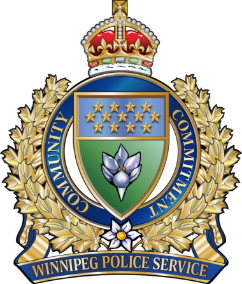The Winnipeg Police Service is committed to ensuring its members serve their community in a safe, professional, and respectful manner.
The Professional Standards Unit is attached to the Winnipeg Police Service Executive and reports directly to the Chief of Police. The mandate of the Professional Standards Unit is to maintain the integrity of the Winnipeg Police Service. It is staffed with one Inspector, one Staff Sergeant, one Sergeant, six Detective Sergeants, and two civilian Administrative Assistants.
The Professional Standards Unit is responsible for managing complaints against members of the Winnipeg Police Service; this includes complaints about employee conduct, Service policies, or service delivery. The Professional Standards Unit investigates these complaints, or when appropriate assigns them to the member’s Division or Unit for follow-up.
The Professional Standards Unit also provides training to members to ensure they understand the accountability and responsibility they have to their community.
The confidence of the public in the integrity of the Winnipeg Police Service must be maintained by the knowledge that the Professional Standards Unit will conduct a full investigation of allegations in a fair, impartial, and thorough manner.
Police Officer's Code of Ethics
As a police officer, I recognize that my primary obligation is to serve the public effectively and efficiently by protecting lives and property, preventing and detecting offences and preserving peace and order.
I will faithfully administer the law in a just, impartial and reasonable manner, preserving the equality, rights and privileges of citizens as afforded by law.
I accept that all persons, rich or poor, old or young, learned or illiterate, are equally entitled to courtesy, understanding and compassion. I will not be disparaging of any race, creed or class of people. In the performance of my duties, I acknowledge the limits of my authority and promise not to use it for my personal advantage.
I vow never to accept gratuities or favours or compromise myself or the Service in any way.
I will conduct my public and private life as an example of stability, fidelity and morality and without equivocation, adhere to the same standards of conduct which I am bound by duty to enforce. I will exercise self-discipline at all times. I will act with propriety toward my associates in law enforcement and the criminal justice system.
With self-confidence, decisiveness and courage, I will accept all the challenges, hardships, and vicissitudes of my profession. In relationships with my colleagues, I will endeavour to develop an "esprit de corps."
I will preserve the dignity of all persons and subordinate my own self-interests for the common good. I will honour the obligations of my office and strive to attain excellence in the performance of my duties.
To compliment or recognize a member of the Winnipeg Police Service, you have several options, including:
- Contact the member’s supervisor directly
- Contact the Professional Standards Unit at 204-986-7242
- Write a letter to the Chief of Police P.O. Box 1680, Winnipeg, Manitoba R3C2Z7
- Complete the online form
If you don't know the police officer or staff member’s name or badge number, provide the date, time and circumstances leading to your compliment. We will try to identify the officer or staff member involved to properly recognize them for their service.
The information you provide is forwarded to the member’s Division/Unit Commander and the involved member.
Complaints against a Winnipeg Police Service member or policy can be filed with different organizations, depending on the type of behaviour that prompted the complaint.
| Organization | Criminal behaviour | Non-criminal behaviour | Administrative / policy matters |
|---|---|---|---|
| Winnipeg Police Service | X | ||
| Law Enforcement Review Agency | X | X | |
| Manitoba Ombudsman | X |
When non-criminal behaviour is involved, you can choose whether to file your complaint with the Winnipeg Police Service or with the Law Enforcement Review Agency. The Winnipeg Police Service investigates criminal matters.
Complaints to the Winnipeg Police Service
To file a complaint with the Winnipeg Police Service, you may:
- Come to any Winnipeg Police Service Centre.
- Write to the Chief of Police, P.O. Box 1680, Winnipeg, Manitoba R3C2Z7.
- Contact the Professional Standards Unit at 204-986-7242.
- Use this online form.
Every complaint is examined thoroughly to determine whether further investigation is warranted. If an investigation reveals that a member has breached any rules governing conduct, a disciplinary process will follow. Penalties range from an admonition up to and including dismissal from the Service.
Complaints to the Law Enforcement Review Agency
You can file a complaint with the Law Enforcement Review Agency at 420-155 Carlton St. (telephone: 204-945-8667). For more information, visit: www.gov.mb.ca/justice/lera.
LERA is staffed by a Commissioner, Registrar, professional investigators and an administrative assistant. Any other complaints, including allegations of criminal behaviour, are investigated by the Winnipeg Police Service.
A member who is the subject of a LERA complaint cannot be subject to any internal police discipline for conduct that constitutes the subject matter of the LERA complaint.
Complaints to the Manitoba Ombudsman’s Office
The Ombudsman's Office investigates complaints from anyone who feels they have been treated unfairly by the provincial government or a municipal government, including the City of Winnipeg. The complaint must relate to a matter of administration. For more information, visit: www.ombudsman.mb.ca
The Ombudsman also has powers of investigation concerning review compliance with the access to and protection of personal or personal health information under the Freedom of Information and Protection of Privacy Act (FIPPA) and the Personal Health Information Act (PHIA).
